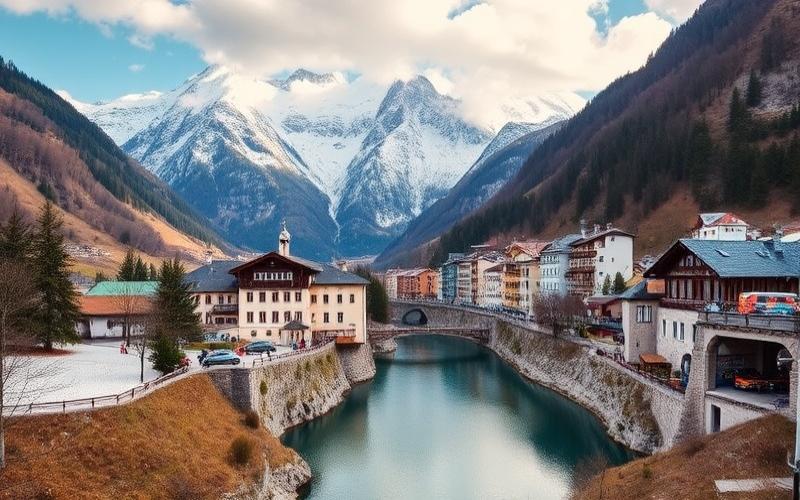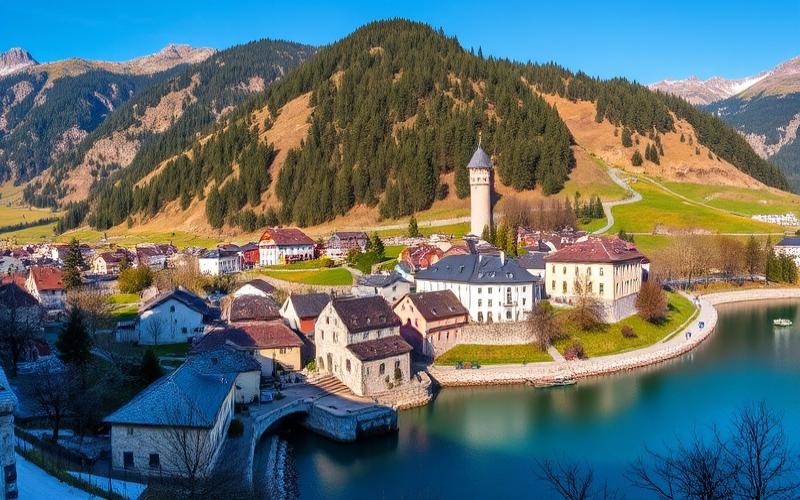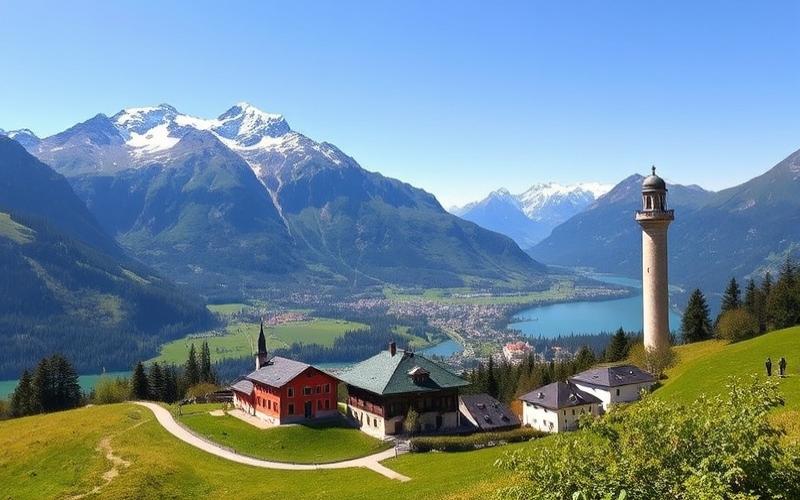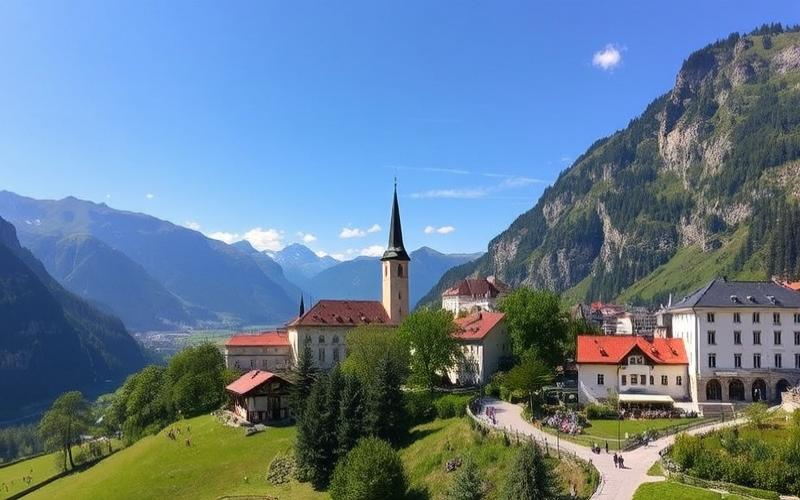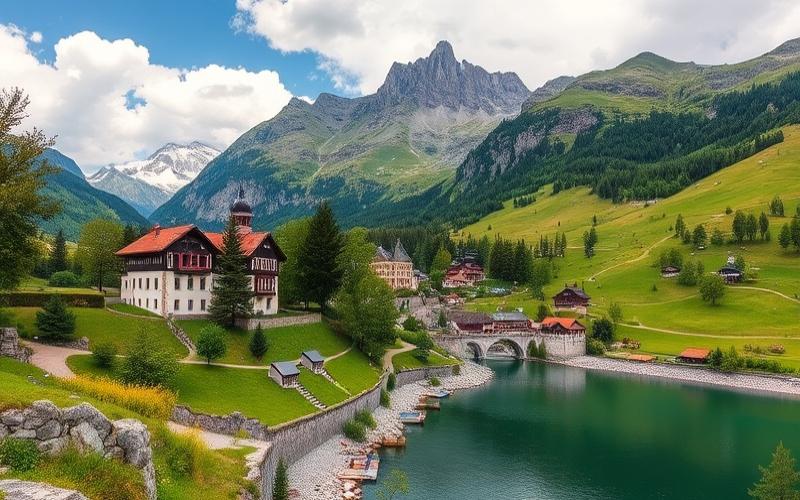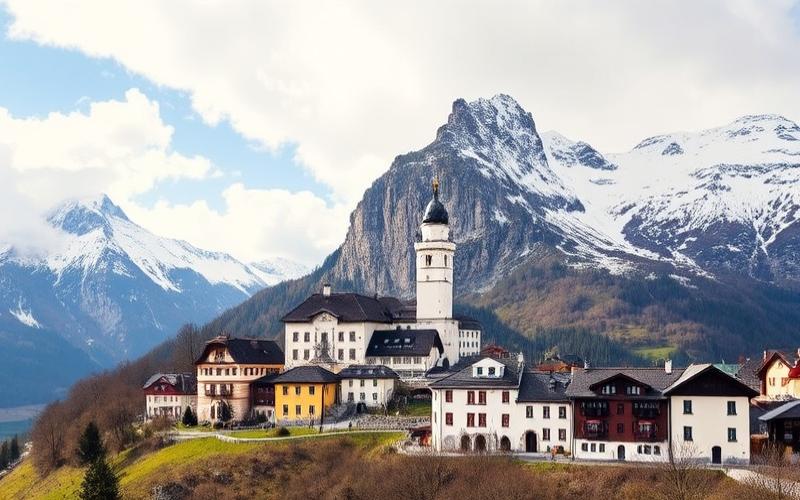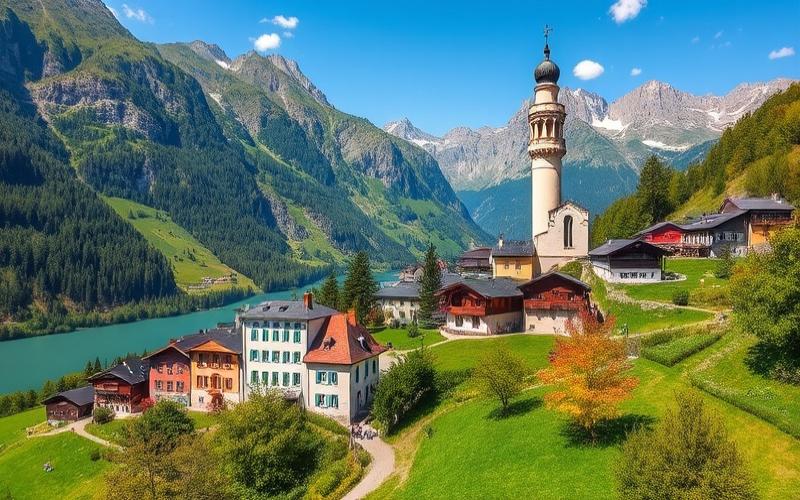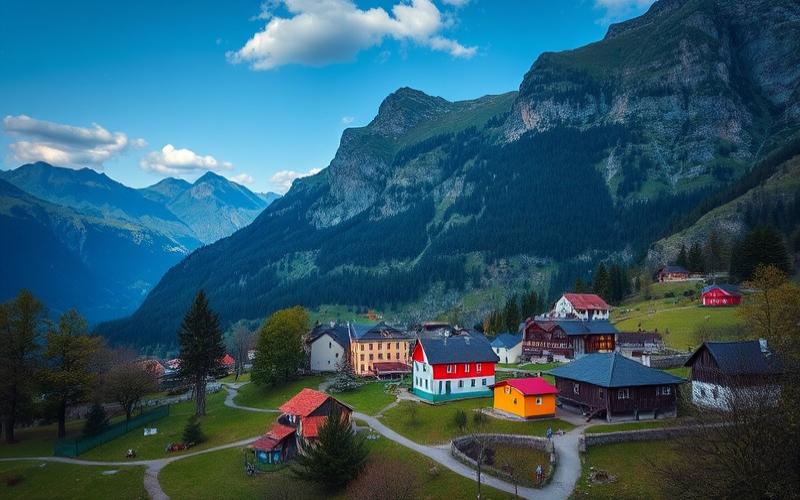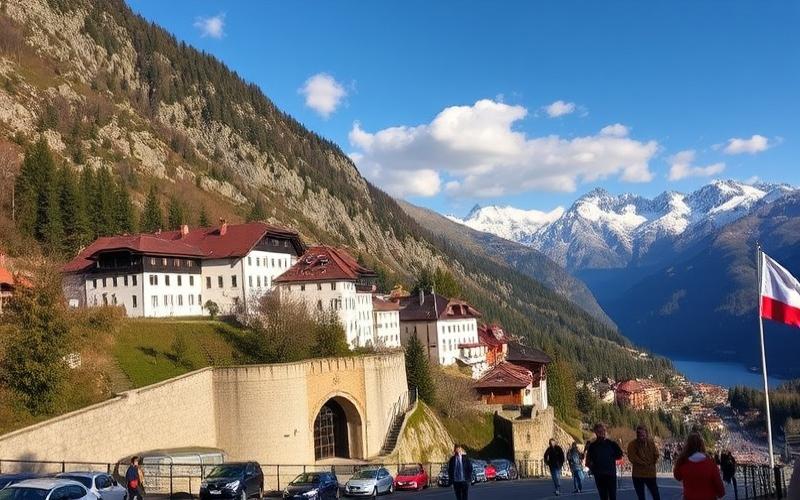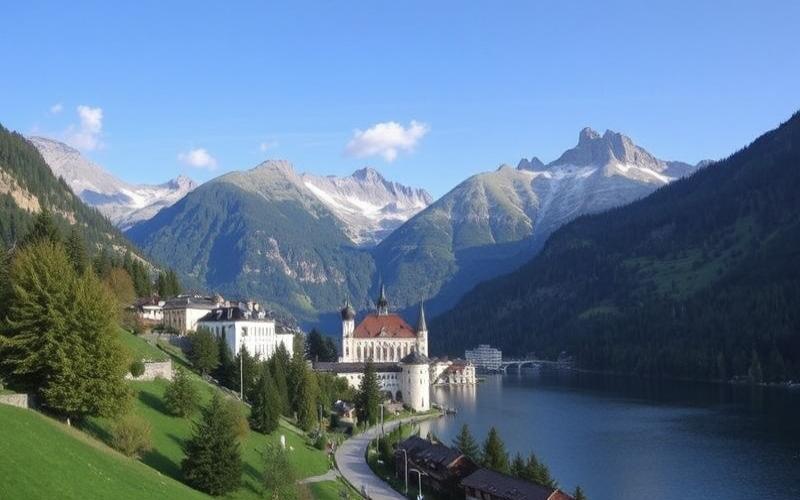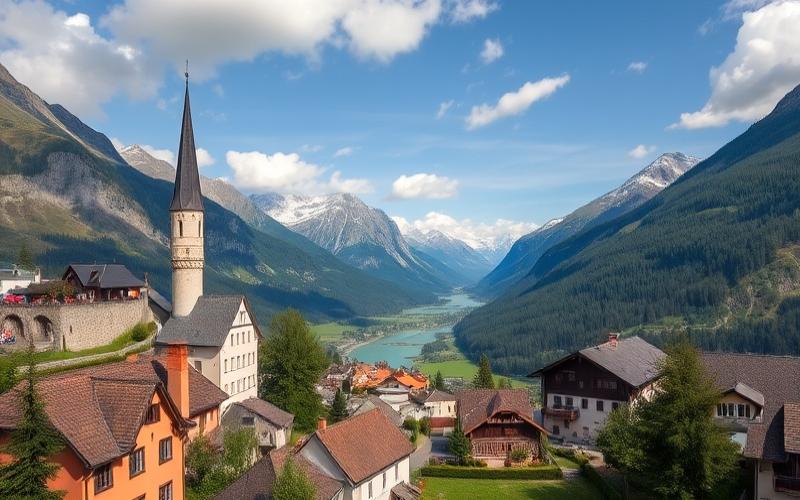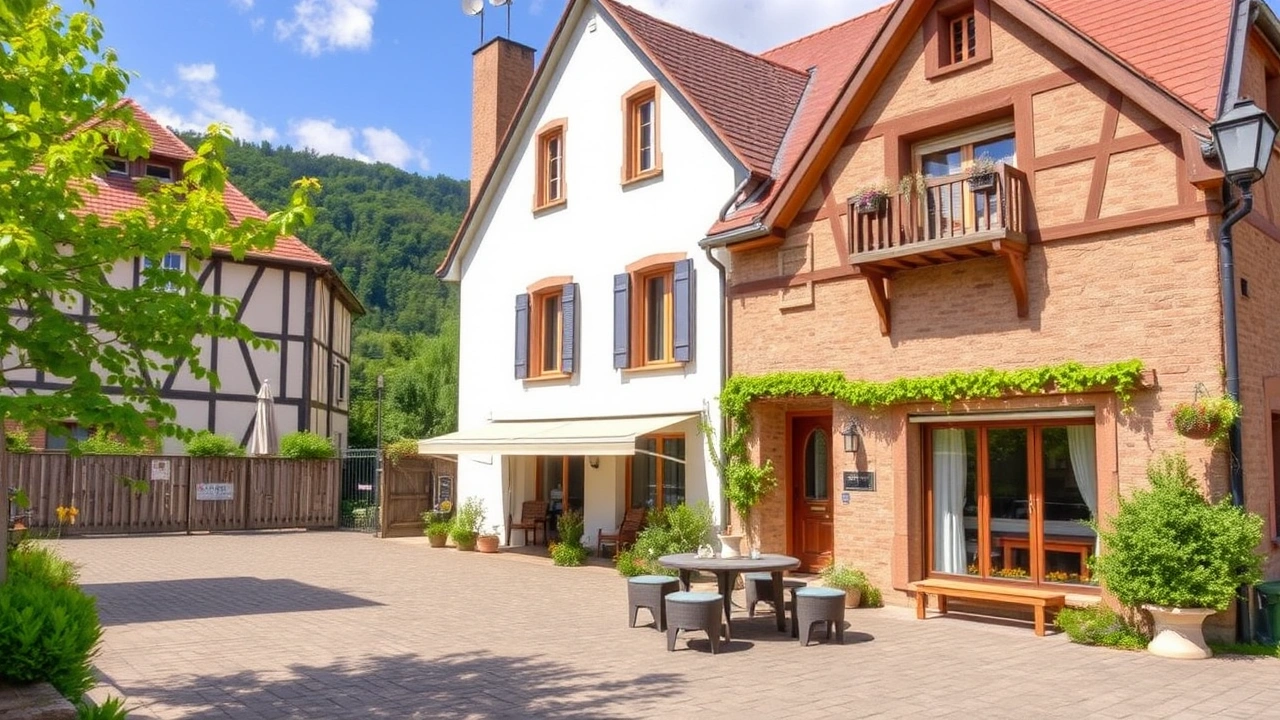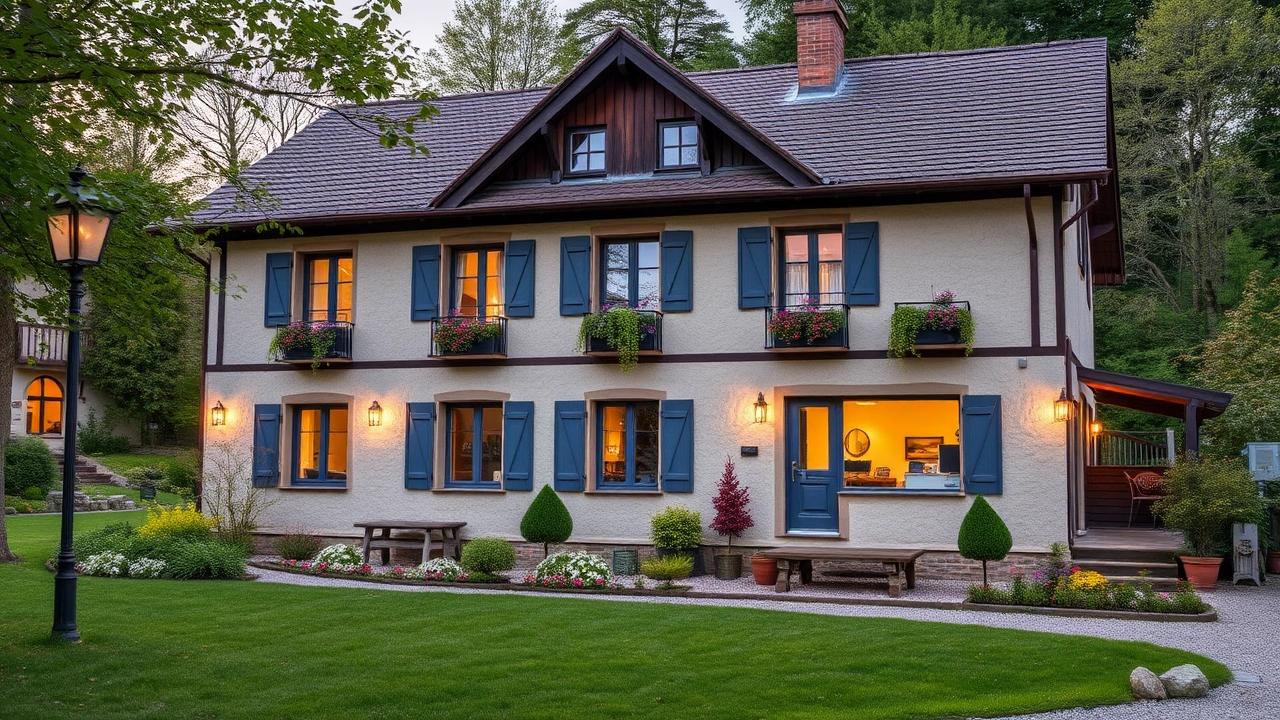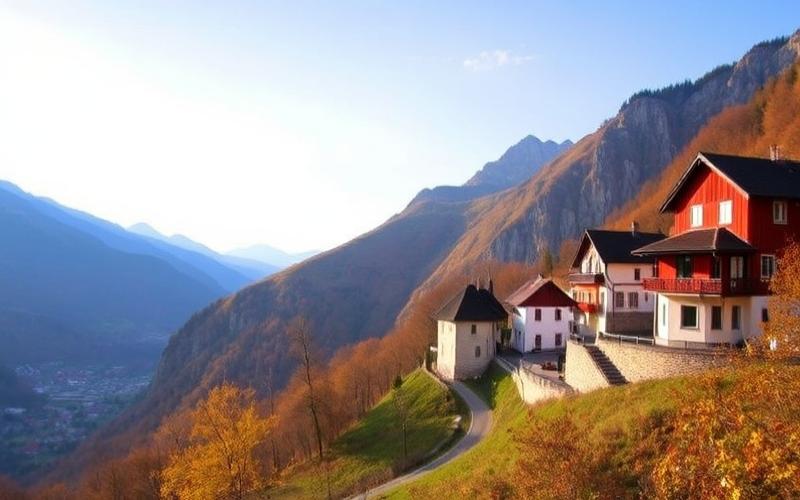
 Published on and written by Cyril Jarnias
Published on and written by Cyril Jarnias
Nestled Between Switzerland and Austria, the Small Principality of Liechtenstein
The small principality of Liechtenstein offers both a tax haven and exceptional quality of life, attracting many expatriates seeking new opportunities. However, settling in this enchanting territory requires thorough knowledge of the specific administrative procedures governing immigration, often more complex than they appear.
Essential Steps for Moving to Liechtenstein
From residence permits to tax obligations and municipal registry registration, this article aims to explore the essential steps to turn a Liechtenstein dream into reality. Whether you’re considering moving for work, study, or simply to enjoy the breathtaking alpine landscapes, this roadmap will guide you through the main formalities needed to settle in this lesser-known European gem.
Good to Know:
Liechtenstein has strict immigration quotas, so it’s advisable to thoroughly prepare your application in advance.
Steps to Obtain a Visa for Liechtenstein
Types of Visas Available for Liechtenstein
| Purpose of Stay | Required Visa Type | Special Feature |
|---|---|---|
| Tourism | No visa required for up to 90 days | Schengen Rules |
| Business | No visa required for up to 90 days | Schengen Rules |
| Studies | No visa required for up to 90 days | Schengen Rules |
| Work | Visa mandatory | Specific procedures |
For short stays (up to 90 days within a 180-day period), no visa is required for tourism, business, or study purposes. However, a work visa is mandatory even for short stays under this category.
Required Documents for Visa Application
- Completed and signed official form
- Valid passport (valid for at least three months after intended departure date)
- Recent passport photos
- Proof of sufficient financial resources
- Travel insurance certificate covering entire stay duration
- Proof of accommodation (hotel reservation, hosting certificate)
- Round-trip ticket or proof of itinerary
- Invitation letter if necessary (particularly for family or professional visits)
Application Submission Process
Liechtenstein does not directly issue its own visas.
Applications must be submitted to the relevant Swiss consular representations. The procedure is generally done in person, by appointment at a Swiss consulate, with physical submission of original documents.
Procedure:
- Complete the form and gather all supporting documents.
- Schedule an appointment with the responsible Swiss consulate/embassy.
- Submit the complete application in person.
- Pay fees upon submission.
Some preliminary steps may be completed online depending on the country, but the interview remains mandatory.
Standard Processing Times
The average processing time ranges from 15 to 30 business days, sometimes longer during peak tourist season or depending on application complexity.
Associated Application Fees
Standard fees align with those in the Schengen area:
- Approximately 80 euros per adult
- Reduced rate or possible exemption for certain profiles: children, students participating in official exchanges
These amounts are subject to change; it’s recommended to verify before each submission.
Specific Features Related to Liechtenstein
Unlike many other European countries with their own consulates, all procedures go exclusively through Swiss diplomatic representations since Liechtenstein itself has no embassies or consulates outside its territory. The applied rules are therefore those governing access to Switzerland and the Schengen area.
Practical Tips to Maximize Your Chances:
- Carefully verify that your passport is valid for several months after your planned return.
- Thoroughly prepare all required supporting documents: demonstrable financial resources and appropriate travel insurance.
- Plan your procedures in advance so administrative delays don’t compromise your plans.
- If you’re invited, always bring a detailed official letter signed by your host with a possible copy of the legal document linking them to the concerned accommodation.
Ensure all your copies are legible and match the originals; any missing document can lead to immediate refusal!
Good to Know:
To obtain a visa for Liechtenstein, it’s essential to distinguish between the types of visas available according to the purpose of stay: tourism, work, studies, etc. Applicants must provide documents such as completed forms, proof of financial resources, medical insurance, and sometimes an invitation letter. Visa applications are generally made through a Swiss consulate, or even online, noting that Liechtenstein does not issue visas independently. Processing times can vary from a few days to several weeks, and application fees differ depending on the visa type. Unlike some European countries, Liechtenstein, through its cooperation with Switzerland, may apply stricter background checks. To maximize your chances of success, make sure to check your passport validity, meticulously prepare all required documents, and consider requesting an invitation letter in advance.
Finding Accommodation to Your Taste in Liechtenstein
Types of Accommodation Available in Liechtenstein:
- Apartments: Available in various sizes (from 1 to over 6 rooms), they represent a large portion of the rental market, particularly in urban areas.
- Single-Family Homes: Very prevalent, with over 6,000 single-family homes recorded. They are particularly sought after in residential and rural sectors.
- Shared Housing: Popular option for students and young professionals, helping to reduce housing costs while fostering social life.
- Mixed-Use Buildings and Offices: Found mainly in urban centers; these properties can also offer housing.
| Accommodation Type | Availability | Suitable For |
|---|---|---|
| Apartment (1–6+ rooms) | Urban/rural areas | Singles, couples, families |
| Single-Family Home | Mainly rural | Families |
| Shared Housing | Urban/student | Students/young professionals |
Popular Neighborhoods and Differences Between Urban/Rural Areas:
- Main cities like Vaduz concentrate the majority of modern apartments close to services (university, shops).
- Surrounding villages offer more single-family homes on spacious plots.
- In urban areas:
- Easier access to public transportation
- Proximity to cultural and economic venues
- Generally higher rents
- In rural areas:
- Peace and nature
- Larger spaces but fewer rental options
Tips for Searching for Accommodation in Liechtenstein:
Useful local resources:
- Local specialized real estate agencies offering comprehensive support during rental or purchase.
- Online platforms such as RealAdvisor or Erasmus Play allowing targeted search by property type, number of rooms, or geographical location.
Recommended steps:
- Define your criteria: maximum budget, desired housing type, preferred location.
- Compare offers on digital platforms then contact owners/agencies directly for viewings.
- Prepare a strong application (see administrative procedures below).
Average Rental Costs and Real Estate Market Specifics:
The Liechtenstein real estate market is characterized by:
- Generally high prices due to land scarcity and strong local demand.
- A significant portion of owner-occupied rather than rental housing; this limits available rental supply.
Rents are freely negotiated but the country provides measures against unreasonable increases to ensure market stability.
| Type | Average Monthly Rent (€) |
|---|---|
| Studio/1-2 Bedroom Apartment | High compared to neighbors |
| Single-Family Home | Very high |
(Exact values subject to annual variation.)
Strict regulations govern land development to ensure architectural quality and environmental harmony—which may limit rapid development but guarantees a well-maintained environment.
Specific Administrative Procedures for Renting or Buying:
For renting:
- Commonly requested documents
- Valid ID
- Proof of income/financial stability
- Possible references
The contract must comply with certain protective rules to prevent unreasonable rent increases after moving in.
For buying:
- For foreigners
- Possible under strict conditions (compliance with national land regulations + prior obtaining of specific permit).
- Rigorous cadastral system ensuring transparency during real estate transactions.
Notary assistance is systematic during property acquisition to guarantee maximum legal security throughout the process.
Good to Know:
Local cultural preference clearly leans toward ownership rather than long-term rental—this aspect significantly influences available rental market supply and the relationship with temporary residents or expatriates.
Finding accommodation in Liechtenstein requires financial planning and adaptation to local practices marked by strong family asset valuation
Renew Your Residence Permit for a Peaceful Life
Key Steps for Residence Permit Renewal in Liechtenstein:
- Check your current permit’s expiration date and plan the procedure in advance.
- Submit the renewal application 60 days before expiration. It’s possible, but not recommended, to start the process up to three months before this date.
- Prepare required documents:
- Properly completed application form
- Valid passport (and photocopy)
- A recent passport photo
- Copy of permit to be renewed
- Proof of health insurance (public or private)
- Proof of sufficient economic resources for the entire requested period (e.g., pay stubs, bank statement)
- Possibly present proof of stable accommodation in the territory.
| Required Document | Detail or Example |
|---|---|
| Completed form | Available from competent authorities |
| Passport | Valid + photocopy |
| Photo | Recent |
| Permit to renew | Photocopy |
| Health insurance | Current certificate |
| Proof of income | Pay stubs, bank statement |
Deadlines to Respect:
- The application must be submitted no later than two months before expiration.
- The administration generally has three months after submission to decide on your application, during which your old permit remains valid if you submitted on time.
Renewal Associated Fees:
Administrative fees are required upon submission; their amount varies depending on the type and duration of the requested permit.
Tips to Avoid Common Mistakes:
- Ensure all documents are valid and complete.
- Don’t wait until the last moment to submit your application to avoid any administrative delays.
- Keep all proof of submission or receipts of completed procedures.
⬛️ Handle your administrative procedures rigorously: an incomplete or late application can compromise your legal stay in Liechtenstein.
Consequences of Late Renewal:
- Submission after the deadline can lead to automatic expiration of the right to stay.
- You risk legal interruption, even temporary or permanent refusal—potentially leading to an obligation to leave the country and complicating any future administrative reintegration.
Reasons Making This Permit Essential:
- It guarantees your legal right to stay, essential for accessing healthcare, working legally, or enrolling your children in local schools.
- It opens long-term perspectives:
- Employed/self-employed work in a secure framework
- University studies without major administrative constraints
- Facilitated family reunification
░░░ A successful renewal ensures stability and peace of mind in your personal and professional projects in Liechtenstein. ░░░
Good to Know:
To renew your residence permit in Liechtenstein, start the procedures at least three months before its expiration to avoid delays that could harm your legal status. Prepare necessary documents, such as proof of stable income and adequate accommodation, along with your valid passport. Renewal fees may vary, so inquire in advance to avoid unpleasant surprises. Watch out for common mistakes like incomplete forms or expired documents. Late renewal can lead to legal complications, potentially affecting your employment or family life in the country. This permit is essential for a peaceful and stable long-term life, as it allows not only working or studying but also facilitates family reunification. Ensure you meet all requirements to fully enjoy the opportunities offered in Liechtenstein.
Understanding Laws and Regulations for Expatriates in Liechtenstein
Main Laws and Regulations for Expatriates in Liechtenstein
Visa and Residence Permit Requirements
| Nationality | Main Conditions | Number of Permits Per Year |
|---|---|---|
| EEA Citizens | Annual quotas, allocation by lottery or government | 56 active / ≥16 non-active |
| Swiss Citizens | Allocation only by government | ≥12 active / ≥5 non-active |
Applications must include an employment contract or proof of financial independence, health insurance certificate, and proof of accommodation.
Registration with the municipal registry is mandatory upon arrival in the territory.
Strict compliance with deadlines for permit renewal or reporting personal changes.
Residence Rights
Residence is subject to strict quotas. Non-compliance with conditions (employment, solvency) can lead to loss of right to stay.
Employment and Work Regulations
- A specific permit is required for any professional activity.
- Employers must justify that the position cannot be filled locally before hiring a foreign national.
- For self-employed workers: obligation to prove economic viability and local interest of the project.
Tax Legislation
Expatriates are subject to local taxation on their worldwide income if tax residents.
List of frequent tax implications:
- Progressive income taxation
- Taxed real estate capital gains except specific exemptions related to expatriation (particularly reductions upon quick sale after departure)
Good to Know:
Since the 2019 finance law, total exemption on real estate capital gains applies under conditions upon departure.
For furnished rentals, if received rents exceed certain thresholds (€23,000), you may switch to a professional tax regime even without formal business registration.
Health Insurance
Enrollment in a locally recognized health insurance is mandatory upon your installation. You must provide a valid certificate during initial administrative procedures.
Automobile Driving
To drive legally:
- National license recognized temporarily
- Exchange for Liechtenstein license required after certain periods
Obligation to insure your vehicle according to local standards.
Property Ownership
There are significant restrictions for foreigners wishing to acquire real estate. Generally reserved for permanent residents with prior authorization; each transaction must be validated by competent authorities.
| Status | Direct Acquisition Right |
|---|---|
| Permanent Resident | Yes (with authorization) |
| Non-Resident | Very limited/exceptional |
Registration with Local Authorities
Mandatory registration in the municipality where you reside, within days of your arrival. This procedure conditions your access to local public services and must be renewed in case of major change (move, civil status modification…).
Useful Resources & Legal Advice
You can contact:
- The official immigration service (« Amt für Ausländer und Passwesen »)
- Specialized firms in international private law
- Embassies/consulates according to your nationality
Associations such as « Netzwerk Expat Liechtenstein » also provide administrative and community support.
Recent Notable Legislative Changes
In response to recent demographic evolution:
- Periodic strengthening of annual quotas according to national economic needs
- Increased controls regarding lawful origin of funds for foreign investors
Important:
Any incomplete or out-of-quota application systematically results in administrative refusal. Meticulous preparation of the application remains essential to avoid any subsequent dispute.
Good to Know:
Expatriates in Liechtenstein must comply with various laws and regulations, particularly those related to visas and residence permits, which vary depending on citizenship and intended duration of stay. Residence rights are strictly regulated, often requiring a prior employment contract to obtain a residence visa. The country imposes precise rules for employing non-residents, with a quota system limiting their access to the job market. In terms of taxation, expatriates may be subject to income tax in specific ways, with bilateral agreements potentially influencing tax obligations. Local health insurance is generally mandatory, especially for long-term residents. Property purchase is restricted for non-residents, often requiring special authorizations. It’s also crucial to register with local authorities within a determined period after arrival. For driving, an international driver’s license may be required during temporary stays. Expatriates can consult resources like specialized lawyers or government services for legal advice, particularly on recent legislative amendments, such as those concerning stay renewal conditions. Online platforms also provide updates on legislative changes that may affect their status.
Disclaimer: The information provided on this website is for informational purposes only and does not constitute financial, legal, or professional advice. We encourage you to consult qualified experts before making any investment, real estate, or expatriation decisions. Although we strive to maintain up-to-date and accurate information, we do not guarantee the completeness, accuracy, or timeliness of the proposed content. As investment and expatriation involve risks, we disclaim any liability for potential losses or damages arising from the use of this site. Your use of this site confirms your acceptance of these terms and your understanding of the associated risks.


